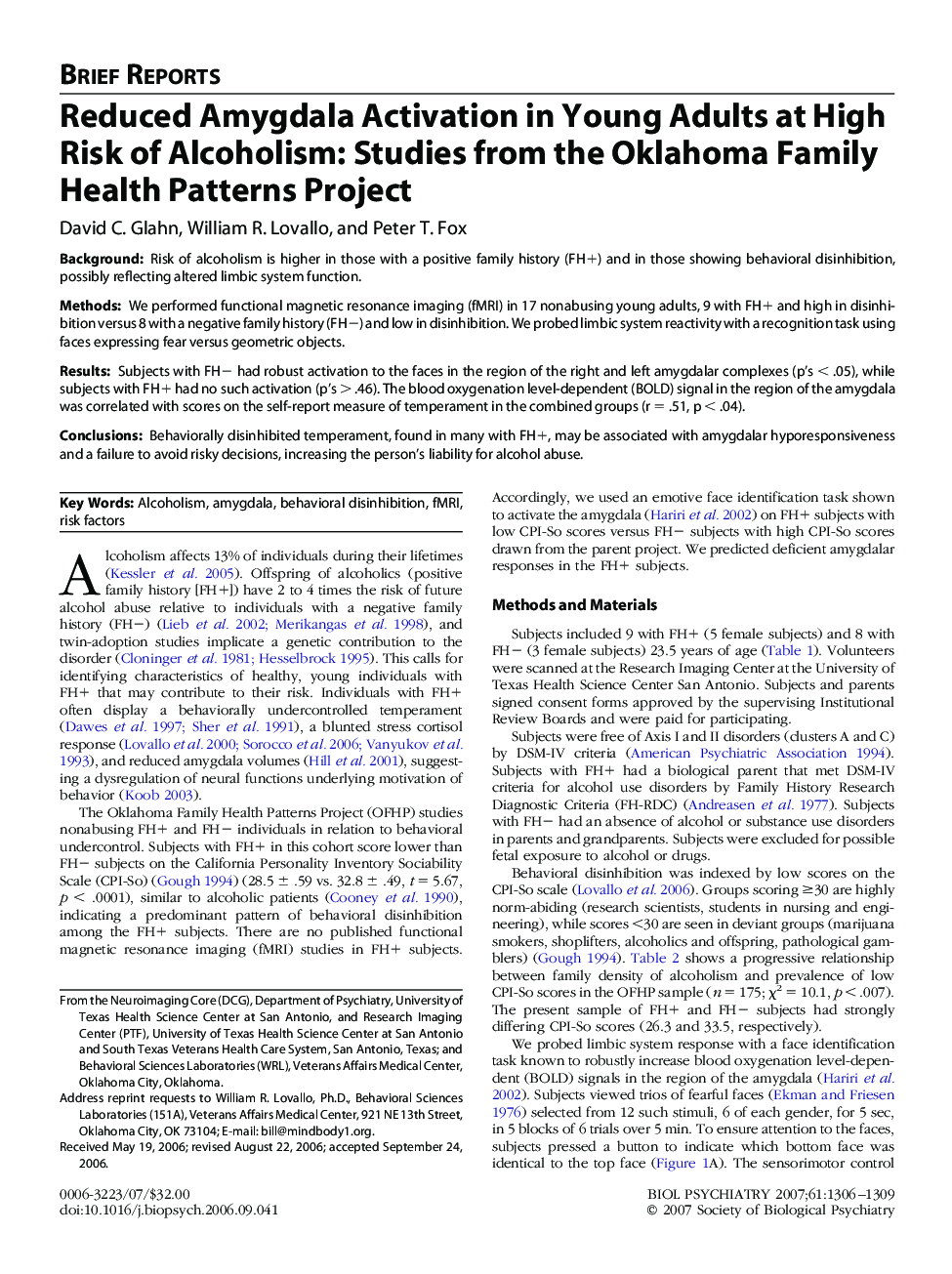| Article ID | Journal | Published Year | Pages | File Type |
|---|---|---|---|---|
| 4180546 | Biological Psychiatry | 2007 | 4 Pages |
BackgroundRisk of alcoholism is higher in those with a positive family history (FH+) and in those showing behavioral disinhibition, possibly reflecting altered limbic system function.MethodsWe performed functional magnetic resonance imaging (fMRI) in 17 nonabusing young adults, 9 with FH+ and high in disinhibition versus 8 with a negative family history (FH−) and low in disinhibition. We probed limbic system reactivity with a recognition task using faces expressing fear versus geometric objects.ResultsSubjects with FH− had robust activation to the faces in the region of the right and left amygdalar complexes (p’s < .05), while subjects with FH+ had no such activation (p’s > .46). The blood oxygenation level-dependent (BOLD) signal in the region of the amygdala was correlated with scores on the self-report measure of temperament in the combined groups (r = .51, p < .04).ConclusionsBehaviorally disinhibited temperament, found in many with FH+, may be associated with amygdalar hyporesponsiveness and a failure to avoid risky decisions, increasing the person’s liability for alcohol abuse.
